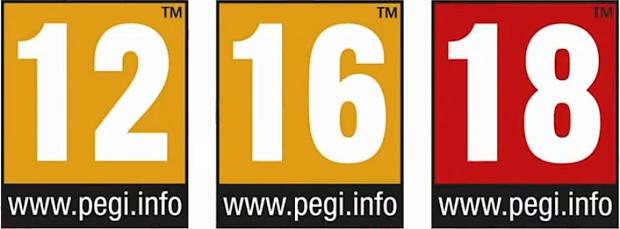
From today (July 30th), retailers can be prosecuted should they sell an 18, 16, or even a 12 PEGI rated video game to anyone who is underage. If they do, it can result in a fine of £5,000 and a jail sentence of up to six months. In an effort to protect young children from playing games they shouldn’t be, video games will now drop the BBFC certificate, for they will now be classified by the Pan European Game Information (PEGI).
So what does this mean for you? Well if you’re under 18, or you’re a parent to a child who is under 18 that plays games, you’ll probably be looking at the PEGI rating a lot more closely now.
This move has come about following recommendations raised by Tanya Byron’s report, Safer Children in a Digital World, to make sure that children only play what’s suitable for their age. According to Byron’s report, “having a dual classification system and two sets of symbols often made things confusing for the consumer, especially for parents and children.” It also cited how the current classification systems had not been effective in relation to “consumer awareness, understanding and use of the ratings information.”
On Sky News today, Byron said, “This is about what is appropriate for children to play. I recommended it should be illegal from 12 and under for children to be sold these games.”
The worry is that despite the advanced storylines and mature themes tackled in video games, they are often still seen by some parents as children’s playthings. Many will still purchase another instalment of Call of Duty for their children in an effort to keep them quiet.
It’s worth noting that in Byron’s report, she does highlight that better information and support is needed, given the lack of responsibility when it comes to parents buying video games for their children. It stated that, “There is a general misconception that parents don’t need to worry about ‘games’. This is reinforced by a generational divide which means that most parents won’t play the game themselves or be aware of the huge developments that there have been in game technology and realism. The information that does exist is generally on websites, which relies on parents seeking it out in the first place.”
To help with this, the website Ask About Games has been relaunched to help parents make informed decisions about the games they buy for their children. As well as detailing the age rating system it also enlightens parents on how video games can be a fun collaborative experience for the whole family.
A tougher stance on preventing children playing inappropriate games is welcome, yet with PEGI now in charge, having a look at the age ratings they’ve given to some of the latest games released this year (a few of which are quite unexpected) is where there might be some contention. For example, a 15-year-old cannot purchase Activision’s latest tie-in of The Amazing Spider-Man for the PS3 or Xbox 360, given that it’s rated 16. Nor can they purchase The Last Story for the Nintendo Wii, which is also rated 16. Should an 11-year-old happen to have an extra amount of pocket money, they cannot take games such as Kingdom Hearts 3D or Kid Icarus: Uprising for the 3DS over to the counter, given that these two games are rated 12.
What do you think of the legislation of the PEGI rating system? Do you think children will always find a way to play what they want? Are you a parent that will give the rating more thought before buying?
Originally published on MCM Buzz on 30 July 2012.


